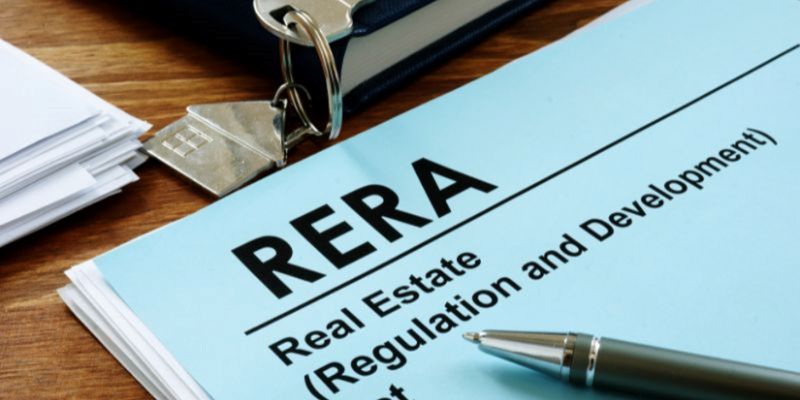As the global spotlight continues to shine on Dubai’s ever-evolving skyline and innovative urban developments, the potential for success in the real estate sector arena is vast.
Iconic skyscrapers, luxury residences, and a vibrant mix of commercial and residential properties characterize the real estate landscape in Dubai.
Whether you’re drawn to the cosmopolitan allure of Downtown Dubai or the waterfront elegance of Palm Jumeirah, the market offers a diverse range of options for aspiring real estate entrepreneurs.
But you need to understand how to start a real estate business in Dubai to avail the available opportunities.
Proper planning is essential when stepping into the real estate arena in Dubai. Understanding the complexities of the local market, legal requirements, and cultural considerations is crucial for a smooth and successful business launch.
Dubai’s real estate sector operates under specific regulations requiring a comprehensive approach.
This blog will guide you to starting a real estate business in Dubai. From gaining insights into the market overview, including key trends and opportunities, to diving into the significance of proper planning, we’ll help you explore the complexities of the Dubai real estate market.
Whether you’re a seasoned real estate entrepreneur, broker, or novice, this guide aims to explore the process and provide actionable insights.
10 Steps to Start a Real Estate Business in Dubai
Starting a real estate venture in Dubai requires strategic planning and adherence to local regulations. Here are the steps you need to follow to start a real estate business in Dubai.
- Choose a Legal Business Structure
- Registering a Trading Name
- Get Preliminary Approval
- Get RERA Approval
- Memorandum of Association
- Choose Location for your Business
- Apply for a Real Estate Trade License
- Registration with RERA
- Registration with DNRD and MOL
- Approval from the Dubai Land Department
Let’s explore these steps in detail so you can follow them accurately.
Enroll in our Real Estate Investment Course to understand property investment principles as a broker or a real estate professional!
1. Choose a Legal Business Structure
Selecting the proper legal structure for your real estate business in Dubai is a crucial decision influencing your business’s operational dynamics, legal compliance, and overall success. The Emirates provides several business structures, each catering to different needs and scenarios.
One of the primary considerations is whether to operate on the mainland or within a free zone. The mainland setup offers access to the broader UAE market but requires a local partner with at least 51% ownership.
On the other hand, free zones allow for full foreign ownership but might limit your market reach.
Among the various legal structures available, the Limited Liability Company (LLC) is a popular choice for those considering the mainland.
An LLC offers shared liability protection among partners, ensuring their assets are distinct from the business. This structure requires a local partner but provides stability and flexibility.
Free Zone Company structures are prevalent for those opting for free zones like Dubai Silicon Oasis or Dubai Multi Commodities Centre (DMCC). Here, businesses can have 100% foreign ownership, making it an attractive option.
Additionally, there are sole proprietorship and partnership options to explore. A sole proprietorship is suitable for individuals operating independently, while partnerships allow collaboration with others, either individuals or entities.
Understanding the legal implications, taxation issues, and the specific regulations associated with each structure is crucial.
Seeking advice from legal professionals and business consultants with expertise in Dubai’s real estate sector can guide you in making an informed decision aligned with your business goals.
Want to learn more about Duabi’s real estate? Check out this Introduction to Real Estate Course to understand the basics and workings of the real estate industry.
2. Registering a Trading Name
In Dubai’s bustling real estate market, where first impressions matter, registering a compelling trading name is critical in establishing your brand identity and creating a memorable presence.
Dubai mandates a formal process for registering trading names, ensuring transparency, and preventing conflicts of interest.
This process involves obtaining approval from the Department of Economic Development (DED), the regulatory body overseeing business activities in the mainland.
To kickstart this process, you must propose three potential names for your real estate business. These names should align with your brand image and reflect your services.
The DED will assess the proposed names based on various criteria, including uniqueness, relevance to your business, and adherence to any cultural or religious sensitivities.
Once approved, a name will be reserved for your exclusive use, preventing other businesses from operating under the same name.
It’s essential to conduct thorough research before submitting your name choices to ensure existing businesses still need to start using them. This diligence minimizes the risk of rejection and potential legal complications.
Upon approval, you will receive a trade name certificate, a formal acknowledgment of your registered trading name. This certificate is crucial during various business transactions, including opening a corporate bank account and acquiring other licenses.
Registering a trading name in Dubai is a legal requirement and a strategic move to distinguish your real estate business in a competitive market.
3. Get Preliminary Approval
Securing preliminary approval for your business is crucial to establishing a successful business in Dubai’s real rate sector. This process involves obtaining consent from the Dubai Land Department (DLD), the emirate’s primary regulatory body overseeing real estate activities.
To initiate this step, you must submit a comprehensive set of documents to the DLD. This includes a detailed business plan, the scope of services you intend to offer, and your strategic approach to navigating the local market.
The business plan should also focus on your company’s structure, demonstrating a clear understanding of roles and responsibilities within the organization. This satisfies regulatory requirements and sets the foundation for efficient internal operations.
Additionally, you’ll need to provide details about the financial aspects of your business, including capital investment and financial projections.
One of the critical components of obtaining preliminary approval is demonstrating compliance with the regulatory frameworks and laws governing the real estate sector in Dubai.
This includes adherence to anti-money laundering (AML) and know-your-customer (KYC) regulations, showcasing your commitment to ethical and lawful business practices.
Upon thoroughly reviewing your submission, the DLD will grant preliminary approval if your proposed business aligns with regulatory standards and market needs.
Securing preliminary approval fulfills legal requirements and positions your business as a credible player in the dynamic Dubai real estate market.
4. Get RERA Approval
Obtaining approval from the Real Estate Regulatory Agency (RERA) is a fundamental step toward establishing the legitimacy and credibility of your business.
RERA, a regulatory arm of the Dubai Land Department, plays a pivotal role in overseeing and regulating real estate activities in the emirate.
To complete this process, your real estate business must have secured preliminary approval from the Dubai Land Department (DLD).
The application for RERA approval involves submitting a set of documents that further detail your business operations and structure. This includes providing information about your company’s ownership, key personnel, and the proposed activities in the real estate sector.
One critical aspect evaluated during the RERA approval process is the qualification of your company’s leadership and key personnel.
Demonstrating industry expertise, relevant qualifications, and experience within your team enhances your chances of securing RERA approval.
Beyond individual qualifications, your company’s financial stability and adherence to ethical business practices are also scrutinized.
This includes showcasing financial transparency, compliance with anti-money laundering (AML) regulations, and commitment to maintaining the highest standards of integrity.
Upon successful evaluation, RERA issues the official approval for your real estate business. This approval fulfills regulatory requirements and instills trust among clients and partners, positioning your business for success in this dynamic and competitive market.
5. Memorandum of Association
The Memorandum of Association (MOA) holds profound significance in starting a real estate business in Dubai. It serves as a foundational document that outlines the essential details of your business, shaping its identity and defining the scope of its operations.
The MOA is a crucial legal requirement for any business setup in Dubai. It is instrumental in securing approvals from regulatory bodies, including the Dubai Land Department (DLD) and the Real Estate Regulatory Agency (RERA).
Crafting a robust MOA requires meticulous attention to detail and a comprehensive understanding of the legal and regulatory landscape in Dubai’s real estate sector. Here is the information you need to include in the MOA:
- Company Name and Location: The chosen name must align with the guidelines set by the relevant authorities. It should reflect the nature of your business.
- Objectives and Activities: Property buying, selling, leasing, and other related activities.
- Share Capital and Distribution: This section outlines the financial framework of your business and influences considerations during RERA approval.
- Shareholders’ Details: It is vital to provide comprehensive details about the shareholders, including their names, nationalities, and ownership percentages. RERA evaluates the qualifications of key personnel, and transparency in this section is imperative.
- Management Structure: Detailing the roles and responsibilities of the management, board of directors, and other vital decision-makers is essential. This section offers insights into the governance structure of your real estate business.
- Compliance with Laws and Regulations: This includes compliance with RERA guidelines, ethical business practices, and adherence to anti-money laundering (AML) regulations.
By articulating a clear and comprehensive MOA, your real estate business demonstrates a commitment to transparency, professionalism, and ethical conduct, strengthening its foundation for sustainable growth in Dubai’s dynamic real estate market.
6. Choose Location for your Business
Selecting the right location for your real estate business in Dubai is an essential decision impacting your operations and growth trajectory.
The geographical placement of your business not only influences its accessibility to clients and stakeholders but also has implications for legal requirements and market dynamics.
Here are the details of the considerations involved in choosing the optimal location:
- Proximity to Key Areas: Identifying a location close to critical real estate hubs and business districts in Dubai is strategic. This facilitates more accessible access to potential clients, networking opportunities, and collaboration with other industry players.
- Legal and Regulatory Compliance: Understanding the legal and regulatory considerations is crucial for seamless compliance with requirements set by entities such as the Dubai Land Department (DLD) and the Real Estate Regulatory Agency (RERA). Certain free zones may offer unique advantages but come with their set of regulations.
- Target Market and Demographics: Analyzing your target market and understanding the demographics of potential clients play an essential role in location selection. If you focus on residential properties, being situated in areas with a high residential population might be beneficial. Similarly, if commercial real estate is your forte, proximity to business districts becomes essential.
- Infrastructure and Connectivity: Consideration of the overall infrastructure and connectivity of the chosen location is paramount. Accessibility through major roads, public transportation options, and proximity to airports can significantly impact the efficiency of your daily operations.
- Cost Implications: Setting up and operating a business can vary across different areas in Dubai. Evaluating and aligning your budgetary constraints with your strategic objectives is essential in making a well-informed decision.
- Future Growth and Development Plans: Dubai is known for its continuous development and urbanization initiatives. Considering the future growth and development plans for the chosen location is forward-thinking.
- Competitive Landscape: Analyze the presence of other real estate businesses, identify service gaps, and assess how your business can position itself effectively amidst existing competition.
The choice of location for your real estate business in Dubai is an important decision that requires a detailed assessment of various factors.
You lay the groundwork for a resilient and strategically positioned enterprise in Dubai’s dynamic real estate market by aligning your selection with your business’s unique needs and objectives.
7. Apply for a Real Estate Trade License
Applying for a real estate trade license in Dubai is a pivotal step in formalizing your venture and ensuring compliance with the regulatory framework set by the authorities.
Here’s a comprehensive guide to understand the process and guide you through the necessary steps:
- Understanding the Licensing Authority: The Real Estate Regulatory Agency (RERA), operating under the Dubai Land Department (DLD) umbrella, oversees real estate activities in Dubai.
- Pre-Requisites and Eligibility: This includes having qualified and licensed real estate professionals within your team, as certain designations require specific certifications.
- Document Preparation: Gathering the requisite documents is a foundational step in the application process. Commonly required documents include a trade name reservation certificate, initial approval certificate, Memorandum of Association (MOA), passports and visas, and proof of office space.
- Submission of Application: Once all required documents are in order, the next step is to submit your application to RERA. This can be done online through the RERA portal, streamlining the process and expediting approvals.
- Payment of Fees: Accompanying your application, you must pay the stipulated fees. The fee structure varies depending on the real estate activity your business intends to undertake.
- Approval Process: RERA will meticulously review your application, ensuring compliance with all regulations. The approval process may involve inspections and assessments to verify the authenticity of the information provided.
- Issuance of License: Upon successful review, RERA will issue the real estate trade license, officially authorizing your business to engage in real estate activities within Dubai.
Understanding the process and adherence to regulatory guidelines ensures a smooth establishment of your real estate business in this dynamic market.
8. Registration with RERA
When establishing real estate in Dubai, aligning with the regulatory framework set by the Real Estate Regulatory Agency (RERA) is not just a legal necessity; it’s a strategic move to establish credibility and foster trust among clients and stakeholders.
RERA thoroughly reviews the application, scrutinizing the submitted documents and ensuring compliance with the regulatory standards. This may involve assessments and verifications to validate the information provided.
Upon successful review, RERA issues the coveted Registration Certificate, officially recognizing your real estate business as a bona fide entity operating within Dubai’s regulated real estate market.
RERA registration is not a one-time affair; it requires continuous compliance with the agency’s regulations. This includes adherence to ethical practices, transparent dealings, and ongoing professional development for the licensed individuals within your organization.
Registering with RERA is needed to establish a robust and respected presence in Dubai’s real estate arena. It fulfills legal obligations and signifies your commitment to upholding the highest standards of professionalism and integrity in every real estate transaction.
9. Registration with DNRD and MOL
Registering with the Department of Naturalization and Residency Dubai (DNRD) and the Ministry of Labour (MOL) is an essential step in starting your real estate business in Dubai. Here are the critical components of DNRD registration:
- Visa Quotas and Categories: Determining the appropriate visa categories and securing the necessary quotas for your real estate business employees is integral. This involves aligning the number and types of visas with the structure and needs of your workforce.
- Employment Contracts: Providing duly signed employment contracts for each employee is a prerequisite. These contracts should outline the terms and conditions of employment, ensuring transparency and adherence to labor laws.
- Accommodation Arrangements: Demonstrating suitable accommodation arrangements for your employees, as per Dubai’s residency regulations, is crucial. This involves presenting either tenancy agreements or proof of company-provided accommodation.
- Employment Permits: Acquiring employment permits, also known as labor cards, is a foundational step. This involves obtaining approval for the employment of each individual within your organization.
- Ensuring Compliance with Labor Laws: Adhering to the labor laws of the UAE is non-negotiable. This includes working hours, remuneration, and occupational safety provisions. Ensuring that your real estate business operates within these legal parameters is vital.
- Employee Records and Documentation: Maintaining accurate and up-to-date records of your employees, including their personal and professional details, is a continuous obligation. This information is often subject to scrutiny during regulatory audits.
- Continuous Compliance and Renewals: Registration with DNRD and MOL requires ongoing compliance and periodic renewals. Staying abreast of regulatory updates and proactively addressing changes in your workforce or operational structure is essential for sustained legality.
Registration with DNRD and MOL is foundational to the legal framework of your real estate business in Dubai. It ensures compliance with regulatory standards and sets the stage for a seamless and law-abiding operation in this dynamic business landscape.
10. Approval from the Dubai Land Department
In Dubai’s dynamic landscape of real estate entrepreneurship, acquiring approval from the Dubai Land Department (DLD) is a pivotal stride toward legitimacy and operational commencement.
This crucial step involves navigating the regulatory protocols set by the DLD, the primary governing body overseeing real estate affairs in the emirate.
Here are the critical components of DLD approval:
- Business Activity Definition: Clearly defining the nature of your real estate business activities is the foremost requirement. Whether engaged in property buying and selling, leasing, or real estate consultancy, specifying these activities is crucial for DLD approval.
- Compliance with Legal Framework: Ensuring alignment with the legal framework set by the DLD is imperative. This involves adherence to laws and regulations governing real estate transactions, property registration, and contractual obligations.
- Financial Assurance: A joint stipulation provides financial assurances, often through a bank guarantee. This assures the DLD of your financial capacity to engage in real estate activities and fulfill obligations, contributing to the overall integrity of the sector.
Approval from the Dubai Land Department is a gateway to legitimate and regulated real estate operations in Dubai. Beyond regulatory compliance, it signifies a commitment to the integrity and transparency of the real estate sector in one of the world’s most dynamic business landscapes.
Conclusion
The key concepts outlined in the process involve meticulous steps to ensure compliance, legality, and operational viability and help you understand how to start a real estate business in Dubai.
From choosing the proper legal structure, registering a trading name, obtaining preliminary and RERA approvals, and navigating the Dubai Land Department’s rigorous scrutiny, each step is crucial to establishing a thriving real estate enterprise in this vibrant city.
The cornerstone of this entrepreneurial process is the approval from the Dubai Land Department.
The DLD’s stamp of approval opens the door to various real estate activities, from brokerage to property development, enabling entrepreneurs to contribute actively to Dubai’s dynamic real estate landscape.
A requirement for this venture is to seek professional guidance. ThinkProp’s real estate training programs offer a wealth of knowledge and expertise, providing aspiring entrepreneurs with the tools and insights needed to navigate the complexities of starting and growing a real estate business in Dubai.
By leveraging professional guidance, entrepreneurs can enhance their understanding, mitigate risks, and position themselves for success in the vibrant and competitive Dubai real estate market.
It’s not just about starting a business; it’s about laying the foundations for a sustainable and prosperous venture in Dubai’s thriving real estate ecosystem.









